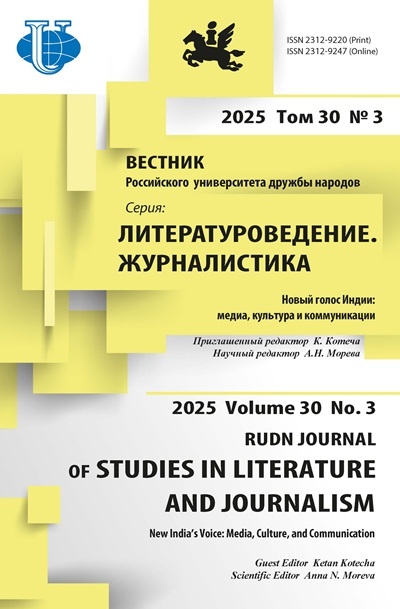Личное и социальное в автобиографическом письме Анни Эрно
- Авторы: Косова Ю.А.1, Пономаренко Е.Б.1, Сиари Ж.2
-
Учреждения:
- Российский университет дружбы народов
- Университет Поля Валери, Монпелье III
- Выпуск: Том 25, № 1 (2020)
- Страницы: 111-130
- Раздел: Компаративистика
- URL: https://journals.rudn.ru/literary-criticism/article/view/23613
- DOI: https://doi.org/10.22363/2312-9220-2020-25-1-111-130
- ID: 23613
Цитировать
Полный текст
Аннотация
В статье изучаются художественно-мировоззренческие особенности автобиографизма в произведении известной современной французской писательницы А. Эрно «Место в жизни». Раскрывается художественное своеобразие разрабатываемого ею «плоского письма», близкого по форме и содержанию к документальным этнографическим и социологическим исследованиям и лишенного характерной для автобиографии субъективности. Движение автобиографического письма рассматривается сквозь призму реализации в тексте понятия «символическое насилие», заимствованного из социологии П. Бурдье. Доказывается, что художественное исследование социально-исторических закономерностей возникновения «классовой дистанции» между отцом и дочерью заменяет у А. Эрно характерное для автобиографии хронологическое событийное повествование. Анализ ключевых для поэтики А. Эрно концептов, таких как «мир», «место», «стыд», «низшее положение», позволяет понять, с одной стороны, как рождается социально-культурное отчуждение, а с другой стороны, становится поводом для социальной критики действительности.
Ключевые слова
Об авторах
Юлия Анатольевна Косова
Российский университет дружбы народов
Автор, ответственный за переписку.
Email: uakossova@mail.ru
кандидат филологических наук, старший преподаватель кафедры иностранных языков филологического факультета
Российская Федерация, 117198, Москва, ул. Миклухо-Маклая, д. 10, корп. 2Елена Борисовна Пономаренко
Российский университет дружбы народов
Email: ponomar_elena@mail.ru
кандидат филологических наук, доцент кафедры иностранных языков филологического факультета
Российская Федерация, 117198, Москва, ул. Миклухо-Маклая, д. 10, корп. 2Жерар Сиари
Университет Поля Валери, Монпелье III
Email: gerardsiary@gmail.com
доктор филологических наук, профессор общей и сравнительной литературы
Французская Республика, 34199, Cedex 5, Монпелье, Рут де МандСписок литературы
- Алташина В.Д. Autofiction в современной французской литературе: лего из эго // Известия Южного федерального университета. Филологические науки. 2014. № 3. С. 12-22.
- Косова Ю.А. Альтернативная версия автобиографического письма в романах Жана Руо «Поля чести» и «Знаменитые люди»: монография. М.: РУДН, 2017. 164 с
- Viart D. La littérature contemporaine et la question politique // Le roman français de l’extrême contemporain. Écritures, engagements, énonciation / B. Havercroft, P. Michelucci, P. Riendeau (dir.). Québec: Éditions Nota Bene, 2010. Pp. 105-123.
- Tondeur C.-L., Ernaux A. Entretien avec Annie Ernaux // The French Review. 1995. Vol. 69. No. 1. Pp. 37-34.
- Dugast-Portes F. Annie Ernaux: étude de l’œuvre. Paris: Bordas, 2008. 191 p.
- Ernaux A. Une femme. Paris: Gallimard, 1987. 112 p.
- Ernaux A. L’écriture comme un couteau. Entretiens avec Frédéric-Yves Jeannet. Paris: Éditions Stock, 2003. 156 p.
- Ernaux A. La place. Paris: Gallimard, 1983. 128 p.
- Ernaux A. Bourdieu: le chagrin // Le Monde. 2002. 5 février.
- Landry J.-M. La violence symbolique chez Bourdieu // Aspects sociologiques. 2006. Vol. 13. No. 1. Pp. 85-92.
- Bourdieu P. La Distinction. Critique sociale du jugement. Paris: Les Éditions de Minuit, 1979. 675 p.
Дополнительные файлы















